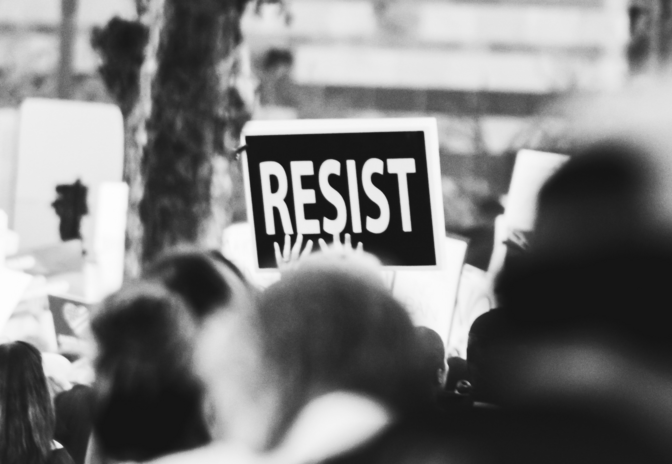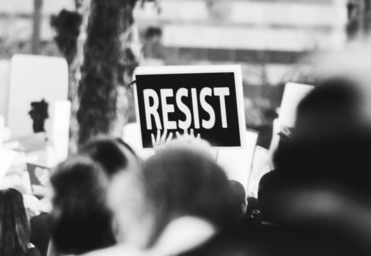I am writing this as a snippet of some of the media that has educated me, changed my perceptions, and forced me to acknowledge a lot of uncomfortable truths. This non-exhaustive list of written media is womxn, people of colour, and people dedicated to writing about long neglected parts of our Western societies that we have become accustomed to ignoring.
The Reckonings | Lacy M. Johnson
Trigger Warning: Rape, Sexual Assault, Abuse, Kidnapping, Racism, Domestic Violence
Lacey Johnson was kidnapped and raped by her abusive ex-boyfriend. She eventually fled, started a new life, and later went on to become an author and during a reading, she was asked: “What do you want to have happen to him, the man who did this to you?” The novel that follows speaks on anger, racism, environmental destruction, and what justice truly means, and how people have persisted despite being dealt the worst hands.
Quotes That Stuck with Me:
“I don’t want him dead. I want him to admit all the things he did, to my face, in public, and then to spend the rest of his life in service to other people’s joy.”
“…rape… It is unspeakable, we are told, because respect for the sanctity and integrity of a woman’s body is the norm. This is, of course, not the way most women have experienced their own bodies throughout history.”
“I learn at this moment that there are some people who will believe I am lying about what men have done to my body no matter what evidence I present to the contrary. I also learn it is not my responsibility to convince them.”
“So when a term like white privilege arrives to suggest that any success we do enjoy is not fully our own doing, but a kind of racial cheating- cashing in an unearned advantage because of the colour of our skin- and that any prosperity we find is not our own, well, for some people it’s too much to take in”
“I didn’t think I should be held accountable for a history of racist violence because I had also been a victim of violence.”
“We learn to see evil in others because we do not wish to acknowledge a painful truth: none of us is as good as we imagine ourselves to be.”

Indigenous Women in Canada Are Still Being Sterilized Without Their Consent | Ankita Rao
Trigger Warning: Reproductive Violence, Colonialism, Sexual Violence, Sterilization, Medical Abuse
This article discusses the present genocide and colonial tactics that the Canadian government has been inciting on Indigenous womxn today, and how colonial attitudes depict Indigenous womxn as irresponsible, more likely to have large families, and waste government money. Rao discusses how consent is not consent when the womxn threatened, withdrew their consent, or felt hopeless in their alternatives. Outlined are several Indigenous womxn’s stories on their treatment within the Canadian healthcare system, and how doctors are paid more for tubal ligation by the Canadian government, the latter who benefits from paying less for free birth control for Indigenous womxn.
Quotes that Stuck with Me:
“When sterilization is forced, however, it becomes a human rights violation, and a tactic of genocide designed to control or eliminate a population.”
““If you don’t understand the context of systemic racism, and how colonization shaped these interactions, it amounts to individual bad people doing bad things,” Stote said.”
“Many of these physicians believed they were helping poor Indigenous communities by shrinking family units, and lessening the burden of more mouths to feed, Stote writes.”
“Their promotion of sterilization procedures, invasive birth control methods, and other reproductive services, instead, are rooted in a combination of financial incentive and racial violence, the same kind that has led to missing and murdered Indigenous women in recent years.”
“But just because sterilization procedures are not completely done in secret doesn’t mean they’re performed ethically. The procedures are never meant to happen by coercion—pressuring weary and exhausted women in the hospital, asking them to do it while they have a cesarean section, or giving out money.”
““The common denominator was they were told, they were threatened or they did not give consent or they broke their consent or they felt there was no other choice for them,” Boyer said. “So there was no real valid consent at all.””

What You Need to Know About Consent and Disability | Spencer Williams
Trigger Warning: Sexual Abuse
This short piece explores the intersections of gender, physical disability, sexuality, and consent. Williams discusses the vulnerability that comes with having physical disabilities and a dependence on caregiver capabilities and ethicality, and showcases how consent applies in all contexts. There is also an emphasis on how physical arousal does not imply consent, and why verbal consent coupled with other aspects is very important.
Quotes that stuck with me:
“Physical arousal does not equate to consent—this is especially important to keep in mind when considering disabled people.”
“Because my care workers are often handling me in vulnerable and intimate situations, it’s crucial for me to establish—and for them to respect—the difference in the physical contact I have with my them and the physical contact I have with the escort I see.”
“The language of consent is what allows me to do just that, and when my consent is not properly attained or ignored entirely, that difference becomes far more difficult to navigate internally.”
The Future is Feminist | Gay et al.
Trigger Warning: Domestic Violence, Sexual Assault, Rape, Gun Violence
Encased in bright neon, this collection of stories, essays, and important thoughts highlight the collective difficulties, frustrations, and personal tragedies that bind womxn through time and space. This collection made me feel less alone in my thoughts, and gave me a frustrating connection with womxn I had never previously thought about, womxn I removed from the pedestals I had placed them on, and womxn I didn’t like.
Quotes That Stuck with Me:
“A woman who prioritizes her sexual needs is scary, because a woman who prioritizes her sexual needs prioritizes herself. That is a woman demanding that she be treated as an equal. That is a woman who insists that you make room for her at the table of power, and that is the most terrifying of all because we can’t make room for her without some of us giving up the extra space we hold.”
“Humans are wide, open vessels, capable of almost anything- if you read you know this- but you cannot beat the mother of your children, or rape your childhood friend while she’s unconscious, or walk up a sorority outside Santa Barbara and start shooting without first convincing yourself and allowing our culture to convince you that those women are less than human.”
“To be able to take issues fundamental to the health and safety of millions of people and turn them into sport where winners and losers are decided by talking points requires some level of insulation from the negative impacts of the outcome in order to enjoy participating.”
“The feelings of the lower-status party may be discounted in two ways: by considering them rational but unimportant oy by considering them irrational and hence dismissible.”
“The women who sustained me through that period were Black and white; old and young; lesbian, bisexual, and heterosexual, and we all shared a war against the tyrannies of silence. They all gave me a strength and concern without which I could not have survived intact.”
Sex Drive | Dr Bella Ellwood-Clayton
Dr. Ellwood- Clayton argues that womxn nowadays don’t want to have sex because they don’t feel sexy enough, thus, you feel that if you don’t look sexy enough to be objectified, you don’t deserve to have sex. She argued that while historically it was the church and religion who used to shame womxn who had sex for pleasure, now it is mass media and advertising that have taken on this role. If you haven’t shaved your legs, lost ten pounds off your current weight, and aren’t in full lingerie, advertising has now told us that that means that we are not in the mood.
Quotes That Stuck with Me:
“Our sexual expression has become less taboo because now money can be made from it. The new story has something to sell: it says sexual happiness can be bought.”
“Furthermore, ageing in a culture that glorifies youth renders the mature woman unappealing. To be ‘natural’ in our society is to be undesirable.”
“Our desire to appear desirable exceeds desire itself.”
“…our culture’s emphasis on women’s beauty leads to self-objectification: the tendency for women to regard our physical self primarily in terms of appearance, and to adopt an observer’s view of it.”
African-American Women and Abortion: A Neglected History | Loretta J. Ross
Reading this during the ongoing Black Lives Matter movement is pivotal because it recognizes that Black womxn are a neglected but instrumental part of the history of reproductive freedom in the United States. Black womxn, traditionally, are seen as limited to mothers and aligned with domesticity. This this article provides a fresh take on abortion and its inter-collusion with Blackness. Ross provides an interesting read on the contributions that Black womxn have given to the pro-choice movement, and also, the discrimination that Black womxn receive as an intersection of Black and womxn.
Quotes That Stuck with Me:
“Shirley Chisolm, a black Congresswoman from Brooklyn, dismissed the genocide argument with these words: To label family planning and legal abortion programs “genocide” is male rhetoric, for male ears. It falls flat to female listeners and to thoughtful male ones.”
“In 1969, Frances Beal, then head of the Student Nonviolent Coordinating Committee’s Black Women’s Liberation Committee, wrote, “Black women have the right and the responsibility to determine when it is in the interest of the struggle to have children or not to have them and this right must not be relinquished to any…to determine when it is in her own best interests to have children.””
“African-American women rejected the single-issue focus of the women’s movement on abortion, which excluded other issues surrounding reproductive freedom. They also opposed the myopic racial focus of the male-dominated civil rights movement, which ignored gender equality.”
“This activism continued after the legalization of abortion by the Supreme Court in 1973, and today more African-American women than ever before are active in the struggle to maintain legal and accessible abortion services. This militancy will probably produce again a tension over the relationship of race and sex from African-American men, a reaction I call “blacklash.” However, it will also produce definitions of power, activism and resistance that reconceptualize how our activism is recorded.””
The Will to Change | Bell Hooks
Hooks outlines the idea that historically, feminism has ignored the plight of mxn caught in patriarchal societies that stunted the emotional depth of mxn, leaving generations of anger and repression. The mental and emotional health of mxn are often stifled at a very young age, either by their patriarchal parents or by a society determined to punish “feminine” values. Bell speaks of forgiveness and redemption for mxn who use womxn as outlets for their emotions of oppression, and advocates for understanding and inclusion in this womxn’s movement.
Quotes That Stuck with Me:
“We need to highlight the role women play in perpetuating and sustaining patriarchal culture so that we will recognize patriarchy as a system women and men support equally, even if men receive more rewards from that system.”
“Anger is the agony of believing that you are not capable of being understood, and that you are not worthy of being understood.”
“No one has really tried to examine what men feel about the loss of time with children, partners, loved ones, and the loss of time for self-development.”
“When daring men come to work loved and loving, the nature of work will be transformed and the workplace will no longer demand that the hearts of men be broken to get the job done.”







